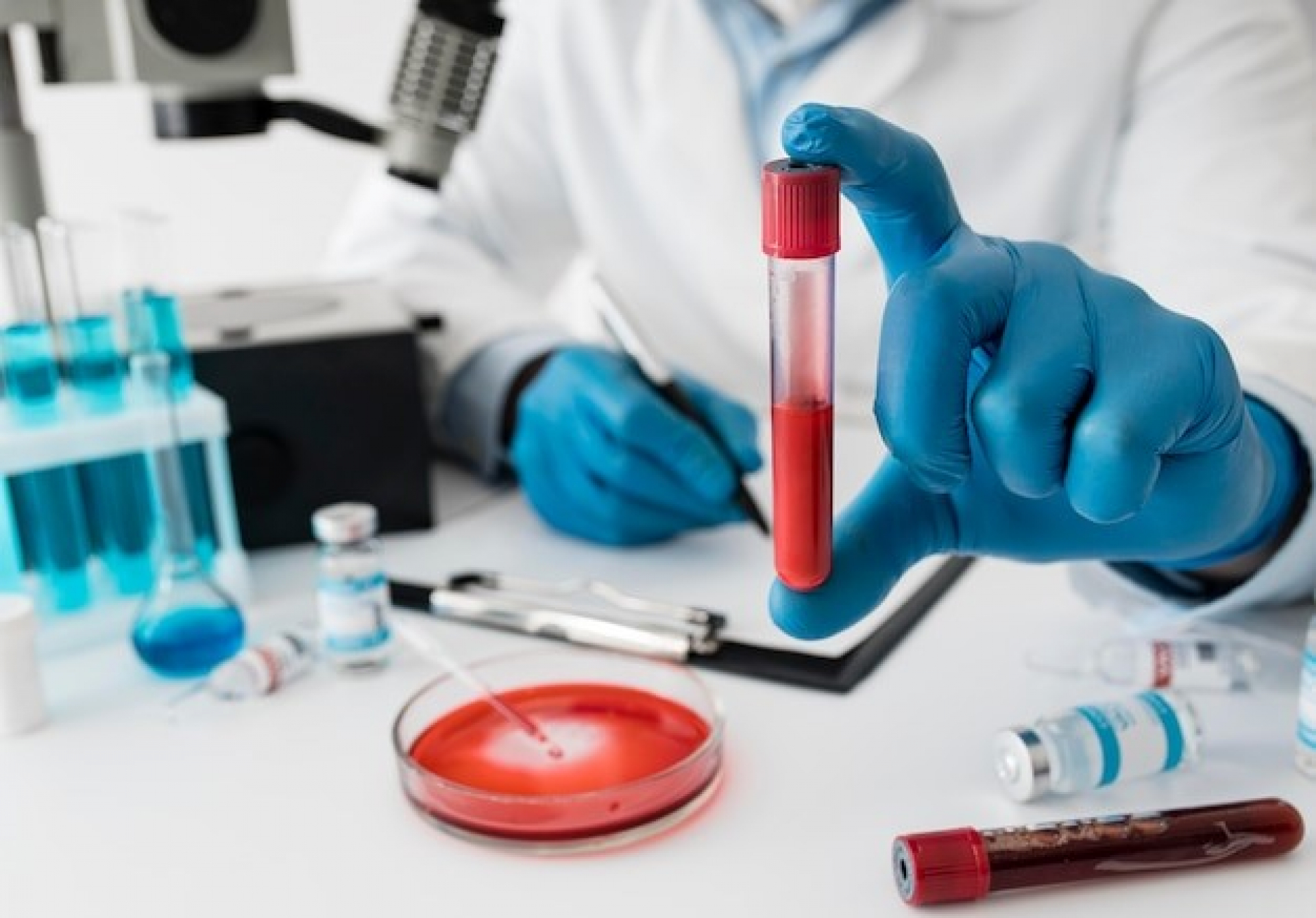Blood is often referred to as the window to the body due to its ability to reveal vital information about our health. Early detection of blood-related diseases is critical in preventing severe complications and improving patient outcomes. Hematology tests play a key role in uncovering conditions like anemia, clotting disorders, infections, and various blood cancers. With advances in technology, the accuracy, speed, and affordability of these tests have significantly improved.
What is Hematology?
Hematology is the study of blood, its components, and the diseases that affect it. Blood is composed of three main types of cells: red blood cells (RBCs), white blood cells (WBCs), and platelets, each performing vital functions. Red blood cells transport oxygen, white blood cells fight infections, and platelets help in clotting. Abnormalities in the levels, shape, or functioning of these cells can indicate underlying health problems.
Hematology tests encompass a broad range of diagnostics that examine different aspects of blood health. These tests can detect diseases at their earliest stages, often before symptoms become severe, making them essential tools in modern medicine.
What are the Key Hematology Tests for Early Detection of Diseases?
Hematology tests can reveal a wide array of conditions, from benign infections to life-threatening cancers. Below is a hematology tests list commonly used in diagnostic laboratories:
- Complete Blood Count (CBC): This is the most frequently ordered hematology blood test, used to evaluate overall health and detect disorders such as anemia, infections, and many other diseases. The CBC measures the levels of red blood cells, white blood cells, hemoglobin, hematocrit, and platelets.
- Blood Smear Test: A peripheral blood smear involves examining the appearance of blood cells under a microscope. It provides critical insights into blood cell shape and size, helping to diagnose disorders like leukemia, sickle cell anemia, and other blood abnormalities.
- Coagulation Panel: This test checks the blood’s ability to clot and can help diagnose clotting disorders, such as hemophilia or deep vein thrombosis (DVT). It measures factors such as prothrombin time (PT), partial thromboplastin time (PTT), and fibrinogen levels.
- Erythrocyte Sedimentation Rate (ESR): An ESR test measures how quickly red blood cells settle at the bottom of a test tube. A high ESR may indicate inflammation, infection, or other chronic conditions like autoimmune diseases or cancer.
- Reticulocyte Count: This test measures the number of young red blood cells (reticulocytes) in the blood, providing insights into the bone marrow's ability to produce new red blood cells. It is commonly used in the diagnosis and monitoring of anemia.
- Iron Studies: A series of tests that evaluate iron levels in the blood, including serum iron, ferritin, and transferrin saturation, which help diagnose iron-deficiency anemia or other iron-related disorders.
- Bone Marrow Biopsy: For more complex diagnoses, a bone marrow biopsy may be conducted to evaluate blood cell production directly at the source. This test is often used to diagnose leukemia, lymphoma, and other hematologic malignancies.
About Modern CBC Analyzers
The advent of advanced CBC analyzers has transformed hematology labs. These automated machines are designed to quickly and accurately perform complete blood counts, ensuring that abnormalities are identified promptly. A CBC analyzer uses laser-based technology to differentiate between various types of blood cells, providing precise counts and detailed measurements.
By automating this process, analyzers have significantly reduced human error and increased the speed at which test results are available. This is especially critical in hospital settings, where rapid results can be life-saving. In addition to speed and accuracy, modern CBC analyzers are often integrated with laboratory information systems, allowing for seamless reporting and record-keeping.
Why are Hematology Lab Tests Important?
Hematology lab tests are essential for diagnosing a wide range of conditions, from mild infections to severe cancers. Hematology laboratories are equipped with cutting-edge tools like automated analyzers, flow cytometers, and molecular diagnostics equipment to ensure accurate results. Here is a breakdown of some critical hematology blood tests performed in these labs:
Flow Cytometry: This advanced test is used to analyze the physical and chemical characteristics of cells in a blood sample. It is particularly useful in diagnosing blood cancers such as leukemia and lymphoma, as it can identify abnormal cells based on specific markers on their surface.
Molecular Diagnostics: With the rise of precision medicine, molecular testing has become increasingly important in hematology. Genetic tests can identify specific mutations linked to blood cancers, providing information crucial for targeted therapies.
Automated Platelet Function Testing: Platelet function tests are critical in diagnosing bleeding disorders. Automated systems allow laboratories to measure how well platelets are working, helping to identify conditions like thrombocytopenia or platelet dysfunction.
Hematology Test Price
One of the key considerations for patients is the hematology test price. While some tests like a CBC are relatively inexpensive, others, such as bone marrow biopsies or flow cytometry, can be costlier. Pricing can vary depending on the complexity of the test, the location of the laboratory, and whether the test is performed in a hospital or an outpatient facility.
While cost can be a concern, the importance of early detection through hematology tests far outweighs the expense. Early diagnosis can prevent complications and reduce long-term healthcare costs by enabling timely interventions.
For example, routine hematology screening for pregnant women helps detect iron-deficiency anemia, a condition that, if left untreated, can result in complications for both mother and child. Similarly, regular blood tests in older adults can detect age-related conditions such as myelodysplastic syndromes, which can progress to leukemia if not caught early.
Hematology Tests are an invaluable tool in modern diagnostics, allowing for the early detection of a wide range of blood diseases. From routine CBC analyzers to advanced molecular diagnostics, hematology labs are equipped with the latest technologies to provide rapid and accurate results. Whether it Is a simple complete blood count or a more specialized test like flow cytometry, these diagnostics are key to identifying conditions before they progress to more serious stages.


